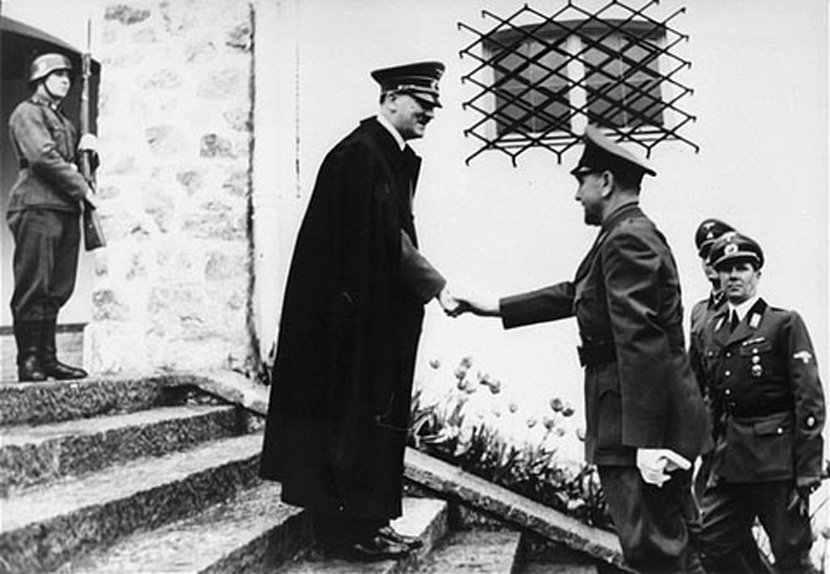Croats gave up from their greeting "Ready for Homeland!"
In the public debate in Croatia about the symbols from the Second World War, the Ustasha greeting "Ready for Homeland" was discussed. This is an old Croatian greeting used by the Ustashas in the Independent State of Croatia, but it was "cleansed" by the Croatian Defence Forces with its honorable battle in the Homeland War. Government office for dealing with the past will answer are all who think like that actually misled.
Political emigrant, Srecko Rover left his memoirs "Testimonies and Memories," describing in detail the time after the war, when the fugitive leaders of the Independent State of Croatia organized groups and pushed them into Yugoslavia to persuade people to rise, and with the help of the West, to take down Tito's regime.
Bozidar Kavran was the most prominent in sending and organizing those groups, a former Ustasha pacifier for the city of Zagreb.
Rover said that dr. Ante Pavelic was now the legal bearer of the leadership of the state of Croatia and the political commander of the Croatian National Resistance (HNO).
The main content of Kavran's speech was that only unified battle can be successful.

- When you come to Croatia, it is your duty to preach to all of these principles! - Bozo Kavran spoke to those who went to Croatia. He used to repeat that the Croats were "apostles of the undying Croatian struggle". Their greeting was: "Everything for Croatia!".
Kavran did not promise anything but severe struggle and great physical and mental suffering. When he finished her speech and when questions of various nature followed, the conclusion was: "Let's go to Croatia!"

It is apparent, therefore, that the members of the defeated movement are renouncing the name Ustasha and the greeting with a raised hand with the call "Ready for homeland!", back in 1948, and instead they are introducing "Everything for Croatia".
Kavran emphasized everyone's right to ideological views, but that unity was needed to destroy the regime.
- We will no longer use the name "Ustasha". The names "Krizari" and "young Muslims" must be removed as well- he stressed.
Due to tactical reasons Pavelic dispersed the Ustasha movement in 1946 and relieved all members of their oaths. Instead of Ustasha, he founded the Croatian Liberation Movement and forbade members to use symbols from the time of the Independent State of Croatia in public. He also forbid the Nazi salute.

Emigrant Boze Vukusic wrote in the early 2000s in the "Focus" magazine that the last minister from the time of Independent State of Croatia Danijel Crljen, who died in Buenos Aires at the end of 1990, "warned of provocateurs who will present themselves as Turbo-Croats, Ustashas, actually work against Croatian interests."
Is it not surprising that members of the movement denounced the Ustasha symbols immediately after World War II, and they were revived by individuals and groups in the early 1990s in the Homeland War?

However, many continued to wear the letter U in which they inserted the cross on their caps or other parts of the uniform. They were almost all around Croatia, but also in Bosnia and Herzegovina, and they were most active in 1945 and 1946.
(Telegraf.co.uk / Vecernji list)
Video: Razbojništvo u apoteci u Beogradu - Stari grad
Telegraf.rs zadržava sva prava nad sadržajem. Za preuzimanje sadržaja pogledajte uputstva na stranici Uslovi korišćenja.

